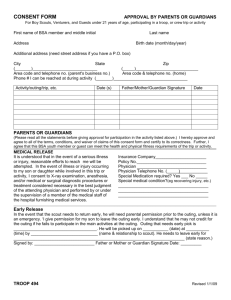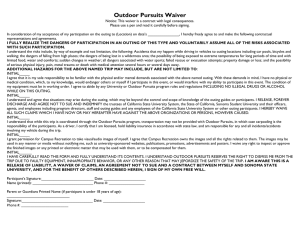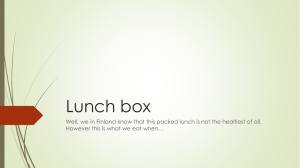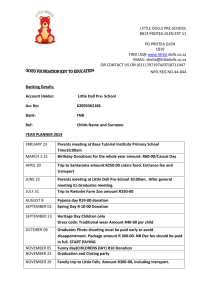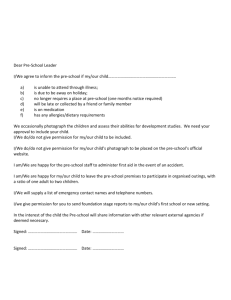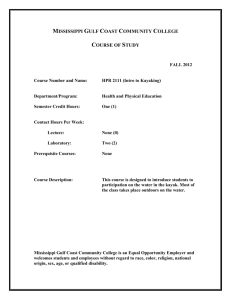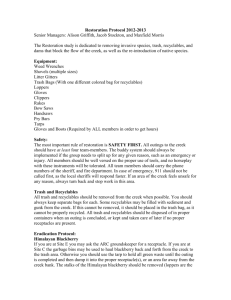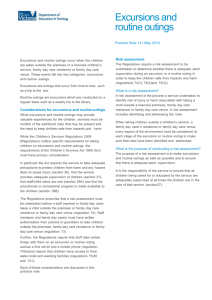Transport and Outings Policy - Markington Pre
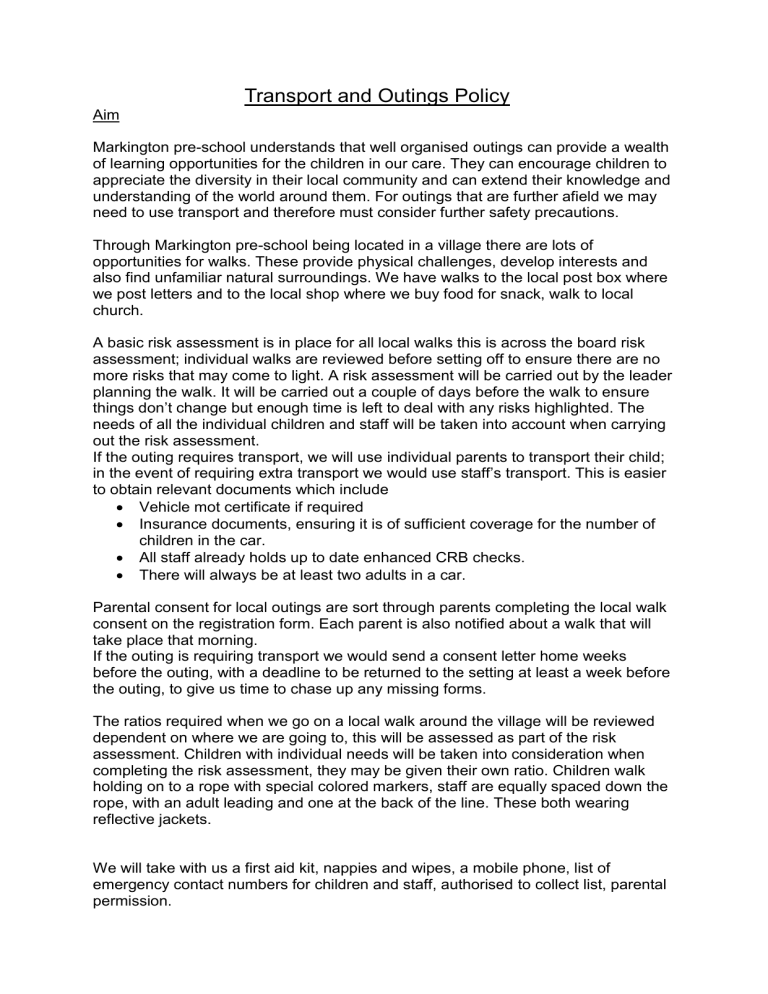
Transport and Outings Policy
Aim
Markington pre-school understands that well organised outings can provide a wealth of learning opportunities for the children in our care. They can encourage children to appreciate the diversity in their local community and can extend their knowledge and understanding of the world around them. For outings that are further afield we may need to use transport and therefore must consider further safety precautions.
Through Markington pre-school being located in a village there are lots of opportunities for walks. These provide physical challenges, develop interests and also find unfamiliar natural surroundings. We have walks to the local post box where we post letters and to the local shop where we buy food for snack, walk to local church.
A basic risk assessment is in place for all local walks this is across the board risk assessment; individual walks are reviewed before setting off to ensure there are no more risks that may come to light. A risk assessment will be carried out by the leader planning the walk. It will be carried out a couple of days before the walk to ensure things don’t change but enough time is left to deal with any risks highlighted. The needs of all the individual children and staff will be taken into account when carrying out the risk assessment.
If the outing requires transport, we will use individual parents to transport their child; in the event of requiring extra transport we would use staff’s transport. This is easier to obtain relevant documents which include
Vehicle mot certificate if required
Insurance documents, ensuring it is of sufficient coverage for the number of children in the car.
All staff already holds up to date enhanced CRB checks.
There will always be at least two adults in a car.
Parental consent for local outings are sort through parents completing the local walk consent on the registration form. Each parent is also notified about a walk that will take place that morning.
If the outing is requiring transport we would send a consent letter home weeks before the outing, with a deadline to be returned to the setting at least a week before the outing, to give us time to chase up any missing forms.
The ratios required when we go on a local walk around the village will be reviewed dependent on where we are going to, this will be assessed as part of the risk assessment. Children with individual needs will be taken into consideration when completing the risk assessment, they may be given their own ratio. Children walk holding on to a rope with special colored markers, staff are equally spaced down the rope, with an adult leading and one at the back of the line. These both wearing reflective jackets.
We will take with us a first aid kit, nappies and wipes, a mobile phone, list of emergency contact numbers for children and staff, authorised to collect list, parental permission.
The Authorised to collect list is important in the event we are unable to get back to the Pre-school. We could phone those authorised to collect each child from our location. If felt required we will take appropriate snack and drinks for the children and staff.
When on a trip, toilet supervision will be done similar to that done in the setting. Only adults that have a CRB check done will be left alone with children. If a child was sick on the trip I would try to allocate two members of staff to help with the sick child. If this was not possible a second member of staff would regularly check the first member of staff and child.
Throughout the trip head counts will be done, staff will be responsible for specific children. There will be a register to ensure each child is present throughout the outing.
All adult-child groups remain the same throughout the trip. If the class needs to split up there will always be two adults in each group. All groups will have a mobile phone w ith each other’s phone numbers.
Useful websites www.dft.gov.uk
References to other relevant policies
Child collection / lost child policy
Health and safety policy
Learning and development
Partnership with parents
